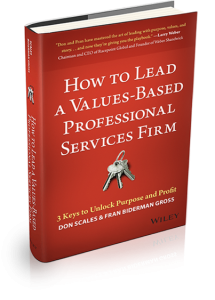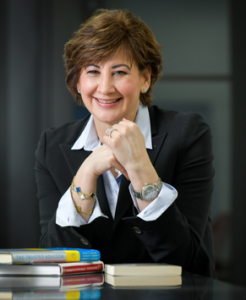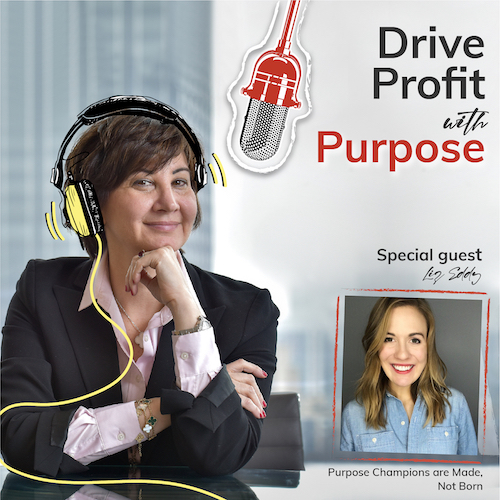
In this episode…
Liz Eddy is a Purpose Champion that isn’t afraid to take on taboo topics, head on. As CEO of Lantern, Liz leads the premier application for helping others approach end-of-life and death issues and planning. Liz shares the secrets of her early successes and the delicate dance between humility and purpose.
Episode Transcript
Introduction
Fran Biderman Gross
I can tell you from experience that being a woman entrepreneur is not easy. We face all the challenges that all entrepreneurs face and then some. That’s why I’m blown away by today’s guest, Liz Eddy.
Liz founded her first social venture at age 15, helped found the nation’s first free Crisis Text Line right out of college, and in 2018 launched Lantern, a venture backed company on a mission to change the way we talk about and manage end-of-life and death. Whatever she does, Liz is always driving impact with purpose, matching her skills and her passion to create solutions for widespread and often taboo challenges.
Liz, welcome to Drive Profit with Purpose, it’s great to have you here today.
Liz Eddy
Thank you so much. And that is an amazing introduction, I always really appreciate when people take the time to create a bio based on how they perceive something versus just reading what you find on LinkedIn.
Fran
Hey, we’ve got to do our homework, especially because the listeners want the most out of whatever it is that your specialty is going to offer. I think it’s a little bit of our secret sauce to do the digging and say: Hey, help me understand what’s purposeful about Liz? And how does she drive this impact and/or profit depending on a nonprofit or not? How does she drive it?
Watching some of the things that you have focused on with great passion, it’s really quite astonishing, to be honest. You’re taking taboo subjects, that are really difficult. Yet you’ve made them intentional, respectful, digestible. So I think it would be really helpful if we could start off by telling the listeners what they don’t know. Can you start off by giving our audience a snapshot of what Lantern is?
The mission of Lantern
Liz
At Lantern, we provide step-by-step guidance around life before and after death, which sounds, kind of like everything of all time, but really what it’s focused on is end-of-life planning and death planning. So, whether you are pre-planning for yourself, or someone you love, or you’re managing the death of someone.
Fran
So that’s quite unbelievable for such a young person. What is it that has driven you from such a young age to be so involved, and to search for solutions to these incredibly sensitive, thorny problems?
The origin of Liz’s drive
Liz
I think it started with losing my dad when I was nine. He passed away from cancer. I was raised by activist parents who were deeply involved. Particularly, my mom started a group called Conversations on Race in New Jersey, and it’s been throughout my life, an ongoing recognition that our purpose on this earth is not just to serve ourselves. You should always, of course, take care of yourself, but to look at the larger community and how you can make an impact on it. So I think the combination of that and then watching my dad get diagnosed and die from cancer in his early 40s, that I realized, we have very limited time on earth. It’s never too early to start to really think about, you know, what you care about, what impact you want to make.
So in high school, I was really lucky to also be surrounded by close friends who were also very mission driven and wanted to act. We were really heavily motivated at that young age to address the fact that we weren’t learning about dating abuse and domestic violence in our school. So we developed an organization that was all about teaching young people about dating abuse, domestic violence, how you can help fundraising for local shelters, and that organization started to spread to universities and high schools all over the US and then abroad.
I started to realize that, you can find ways to take really difficult thorny, uncomfortable conversations topics and make them more palatable, so people feel less isolated in their own experience, that they can get the help that they need, that they can recognize if they need help. I think doing that really set me on a trajectory to know that I needed to use those skills to continue to have those difficult conversations.
Are purposeful leaders born or made?
Fran
That is super interesting for you to be so involved at such a young age and being in the environment that has encouraged that. Do you think that purposeful leaders are born or made?
Liz
Oh, I think made. I believe inherently humans are good. And that the world and the circumstances that you’re engaged with, can cause a variety of different directions for you throughout your life. But I do really believe that people are inherently good. That we inherently love and do care for others. Again, environmental effects can dramatically change that, unfortunately. But I definitely think, the environment I was raised in, my family was very supportive of and promoted activism throughout my life, and then also very supportive of entrepreneurship.
On being a female entrepreneur
Liz
My grandmother was an entrepreneur, at a time where being a female entrepreneur was not a thing. It was very, very difficult to do. It continues to be difficult to do, but in her time even more so. I watched her succeed and continue to run her business into her early 90s. My mom is an artist and activist. I watched her build her business and do the work that she’s done throughout my life. I don’t think it ever felt out of reach for me. That’s a gift, to know that you have the possibility in front of you.
Fran
Could you go back a little bit and tell me about your grandmother, because I’m really intrigued now ran a business into her 90s, what business was it? What challenges did she have? Give me a little bit of a snapshot there.
Liz
My grandmother was a fashion designer. She initially started out working for Saks Fifth Avenue and a couple of other bigger department stores as a buyer. Then she started to design her own clothes in the 60s, and continued her business. She was literally designing two seasons a year and quietly selling things out of her apartment well into her 80s and early 90s. She was an exceptional human being. She was the type of person that she really didn’t fear change.
She didn’t fear trying new things. She became a radio DJ in her 80s for a classical music station. She didn’t know how to work her microwave before that. She was always inspiring to me and, interestingly enough, the inspiration why Lantern was created. Watching her face adversity and developing her business was always something that made me feel like I could do it too.
The role of passion in purposeful leadership
Fran
So, do you think you have to be passionate about what you do to succeed as a founder?
Liz
I think it depends on what you, you consider success. I think there are certainly people that see opportunity. Maybe they don’t particularly care about the thing, but they see opportunity, whether financially or for positive impact, or whatever it is, and learn to love it, because their end goal is the success. And yeah, that’s what it is, it’s a means to an end.
I’ve always really believed that in order to have success on a mental health level, on a personal level, on an emotional level, you have to really care about the thing. Otherwise, it’s so easy to get burnt out. It’s hard. There’s really nothing easy about starting a company. I don’t think I’ve ever heard a startup founder say it’s easy. It’s just known that it’s not. If you aren’t in love with what you’re doing, it can be a pretty miserable process.
Understanding Public Benefits Companies and why Lantern went that route.
Fran
I will take that as a hard YES. You absolutely have to be passionate, no matter how you define success. So Lantern is a public benefit company, can you tell us why you chose to go that route?
Liz
I’m not sure how familiar listeners are with what a public benefit corporation is. So I’ll quickly just loosely define it. But basically, when you are forming your business, you make the decision: are you an LLC, or a C Corp or an S Corp. A public benefit corporation is a nationally understood identified designation, similar to a C Corp. But when you become a public benefit corporation in your formation paperwork, you quite literally have to write what the mission of the businesses is and that’s not “make profit.” The mission of the business stated in terms of some kind of public benefit. For us, we really want to make sure that our business, whether or not my cofounder, Alyssa, and I are at the helm, that there’s always this foundational core, mission-driven belief to helping people particularly, helping grieving families. That won’t go away, no matter who the leadership is. And it gives you permission as a business to choose mission over profit.
Fran
Oh, my God, that’s so amazing. To actually incorporate in your legal documentation, exactly where this company can go and cannot despite leadership. It gives permission to deliver on its mission over profit, which is a heck of a permission slip. Because it means that the mission is more important than anything to keep intact. To be able to state that is really truly a public benefit. And it ultimate sets up a company for success, because the trajectory is in stone, so to speak.
Liz
It was not optional for us. Especially, bringing in investors, bringing in advisors, we needed to make sure we had a really firm foundation of where the company stood, and that it was very clear to anybody that was getting involved with their time, with their money, that they knew that this was a part of what we were doing. I think that’s important in every space, but particularly in the end-of-life and death space, there’s a huge trust problem.
I would say the vast majority of people, when they think of end-of-life and death, they think of the articles you see about funeral homes, taking advantage of people, and battles with hospice care. There’s all of these dark pockets of the space but that doesn’t even make up a fraction of it. The vast majority of people are good, they’re trying their best. They’re trying to help. There are certainly bad players in every space. I think there’s bad players, particularly because this is such an emotional topic. They sort of rise to the top as the kind of feeling and the tone of the space. So we wanted to make sure from the second we came in, that we were really clear that trust for us is really important. That we’re in it for the right reasons, that we’re here to help. And that there’s no question of why we do what we do.
The importance of co-founder synergy and shared purpose
Fran
So how did you come to meet your cofounder and become cofounders in Lantern?
Liz
Whenever I talk about her, it’s like a love letter. Her name is Alyssa. She is absolutely one of the most incredible humans I’ve ever known. We met at my first job out of college. I joined a company called Do Something which is where our Crisis Text Line spun out of. We were early 20s. I was very fresh out of school and never had a full-time job. I worked in an ice cream shop before that point. She was one of the first people I met when I started there. It’s interesting to me to a.) meet a friend through work and b.) meet a co-founder, who is a friend and a co- worker.
Our relationship was always based in a professional setting. We were very comfortable with giving feedback, we were very comfortable with working on hard problems together. Do Something develops national cause campaigns and global cause campaigns around really tough subjects. And so we were talking about, sexual assault in schools and gun violence, you name it. We were very comfortable with each other and giving feedback. And making sure that we were producing the best possible things we could together, but also just really enjoying it and able to have fun and to laugh and to be supportive. So that friendship really evolved from that environment. We were always the type of friends that would share ideas. For years, I can’t tell you how many domain names we own and things we considered creating, a Google Docs of ideas. She was the person I would wake up in the morning, and I’d be like, “I have this thought, what about this?” So it was really a no brainer. When lantern came to be, she would be the first person I would take it to and that I would want her to be a co-founder on the project. We’re definitely the perfect balance for each other. She’s very product oriented. She’s very operations oriented. I’m very much into the marketing, business development, or the external side of things. It really took me two seconds to say this is the person I want to work with here.
Fran
It’s always great to have that ying and yang and the respect between two individuals. Because it really does take a village, and to take feedback and to grow together. That’s incredible that you have such a strong, long bond and to be able to take it into Lantern.
Knowing when you’ve found your next purposeful project
Liz
I think as entrepreneurs, it’s really challenging to decide what you want to start. I wouldn’t be surprised if the vast majority of entrepreneurs probably had 15, 20, 100 other business ideas before they got to the one that they got to. For us, I think you sort of know when you’ve met your match. It’s like the thing that you can’t spend a day not thinking about. That you’re daydreaming about. That you’re waking up in the middle of the night being like, “Oh, my gosh, we’ve got to do this.” That’s exactly what happened with Lantern.
Balancing the need for capital with the necessity of Purpose
Fran
So Lantern is also venture backed. Can you share a little bit about how you went about identifying potential funders? And how important was it that they saw or connected to the purpose of the company not just the potential economic benefit?
Liz
We’ve done two venture rounds, a pre-seed and a seed. I wish I could say when we first went out that it was super strategic, but neither of us had ever raised venture capital before. I think we went the classic route of trying to read everything, talk to everyone, creating decks, doing practice pitches, getting feedback. But you really don’t know until you’re in it what it really all means and how people are going to respond, especially with a product like Lantern where in the vast majority of our pitches we were the first company they’d ever spoken to in the space. It was very, very new. Not to say that the industry is new but having companies like this pitching venture capital was pretty new. Most funds didn’t even have a category that they could bucket us into. They didn’t have a thesis around it. They hadn’t done a ton of research on the space. We were more often than not coming into the conversation trying to explain why they should care or why it was relevant, helping them understand high level data points around what exists and how people use it and why. That has dramatically changed in the two years we’ve been around. When we did our last raise, there was no real need for explanation as to why a business like our needed to exist. With COVID I don’t think anyone before was thinking about their own mortality like they are now. So it’s a much clearer pitch at this point then it was in the first go-round.
Taking a risk to stay purposeful
Liz
In terms of understanding our mission, we actually turned down some early investment, which was pretty risky for a company that was pre-product. We turned down our first term sheet because we felt like we weren’t aligned on the mission and where the company was going to go. We knew that that could have been it, that maybe we weren’t going to find someone else. But we really believed that there were people out there that would understand the vision of the world that we had and how we wanted to build it. A lot of times, in venture capital, it is a numbers game, you just need to talk to a lot of people and you get way more no’s than you get yes’s, especially in a pre-seed product. We ended up finding our first lead investor, a fund called Twenty Forty-Eight. They’re a brand new fund, we were their seventh investment, I believe, but they were longtime investors from other places. They really saw what we were going for, and really believed in it and believed in us as the right people to do it. It’s pretty miraculous, once you find a lead investor, the pieces all sort of pulled together. It really is just finding that lead.
Feeling Purpose in your gut
Fran
What’s the real tip or trick that you could share or experience to share? How do you trust your gut when the term sheet doesn’t feel right and you’re going to turn down something like, how does purpose play a part there?
Liz
I think there’s definitely some tactical things. I can’t stress enough how important it is when you’re taking venture capital to have a good lawyer. Because there are, as I said, in every industry, in every space, bad players. And there are venture funds that will tuck things into the contracts that you might not even know how to recognize as, especially as someone new to the space. There’s a lot of complex terminology. It’s good to have a lawyer. That’s just a tactical thing that I just always recommend. It’s worth every penny.
On the gut instinct side of things. At least for us, it was how they talked about the industry. It was how they talked about it, as if it were at arm’s length. It wasn’t something that they felt or they experienced. You don’t have to have experienced a loss to understand why it’s important, and why this needs to exist, but you have to have some kind of level of sympathy, empathy, for those that are going through it to be able to see why we’re doing the things we’re doing the way we’re doing them.
An example of that is when we came out with the first version of lantern we knew that it had to be really freaking good. The first version had to be really good. It could not be the classic tech startup MVP, that’s like: “Ah, if it breaks, it breaks. If someone has a bad experience, it’s fine. There’s millions of other people.” NO! When you’re dealing with people who have lost someone it has to be good from day one, it will get better. And you can’t stall, stall, stall and never put something out, but it has to it has to be good enough that people can find what they need, that it’s not going to be super buggy, that they’re going to feel confident that they got the right answers. So I would say to investors who were talking to us, I’d say “Imagine if you went on a bank site, and it said beta of at the top, would you put your money there? No.” That’s exactly how it is with this space too.
Fran
It’s the cost-of-entry. The experience has to be good. You’re dealing with some of the most emotionally charged times. I appreciate and value how high the bar had to be set in order to actually enter this space not in beta mode, even though it can only get better, right?
Liz
Oh, it’s gotten so much better!
Listening to the market to improve product
Fran
To be fair, though, it’s gotten better. Why? Why has it gotten better? Because your communications are clear, because of your feedback? You’re listening to what experiences needed to be enhanced, or what services needed to be added? You’ve set a baseline and said this is the minimum and then this is how we’re going to get better. very intentional, very purposeful, very mission driven.
Liz
Exactly. So much listening. Way more listening than talking.
Fran
That’s the only way. When I think about Lantern, you had a bar that was set pretty high, but you listened, not just to respond, but you listened to understand and then respond. With the add ons and the components that you added to enhance the experience and consistently expand the range of the type of issues that you’re dealing with.
The mistake of thinking that you, as the founder, are the user
Fran
When you start out with something, you only know what you know. You mentioned that you founded Lantern after going through your own grieving process and personally experiencing that challenge that came along with it. How important do you think it is for a founder to have a personal connection to the challenge that they’re looking to solve?
Liz
I think it makes a huge difference if you do. It is challenging. You can absolutely sympathize in a situation or even some people truly are empathetic human beings. They could have never experienced something and just deeply feel it to their core. Those humans, my cofounder is like that. She’s been at a little bit of distance if she’s experienced many deaths. She hasn’t lost somebody very, very close to her at this point. And she’s a highly, highly empathetic human being. She’s the type of person that will do absolutely anything and everything to listen, help and support anyone that’s going through a difficult time, whether she’s close to them or not.
I think for the most part, being able to step back and put yourself in the position of where you were is a really powerful thing at the start of your company. It should not be the only thing you base your business. I think founders make a huge mistake when they think that they are the user and that there are no other users. If you fully build something around your own experience, yes, you understand one piece of it. But for me, yes, I lost my Dad when I was young. I was a partial caregiver along with a couple of other people to my grandmother, and then managed her end-of-life and death. So I have that experience. But, she died at 96. There were no confusing complications about her death. Yeah, I had a very supportive family, and we have a lot of health. I am one piece of many, many, many, many experiences that surround a loss. So to think that my personal perspective is the one and only one would be a huge mistake. It’s certainly a driving and motivating factor to look back on that time. And know that you’re improving upon it. But that’s definitely not the ONLY thing.
Fran
When I think about it, to have that personal, life experience is definitely a value-add. To your point, empathy is important and we can train ourselves, learn to have empathy, even though we don’t technically have that feeling or understanding of familiarity. But there is no doubt that having that experience and the sum total of your life experiences, different roles, different times, different ages, definitely enhance, because you can tap into those incredible emotions.
The role of venture capital in experimentation and the importance of engagement
Fran
So you’re venture backed, you’re driving profitability, you raised money pre revenue and seed, etc., we could talk all about those things. Help me understand a little bit about getting to profitability. Is there a clear line of sight from how purposeful and intentionally you were to get to what I would call a profitable state?
Liz
With venture capital, one of the gifts is it allows you to experiment in a way that if you’re bootstrapping, you really don’t have the time or the space to do so. We started out as a direct to consumer company. Anybody focused on managing a death will know that it’s very hard, especially early on, to even find the people, because if you’re trying to reach someone who is at a highly emotional moment, they’re really not doing a ton of research, they’re not trying to compare different options. You have to get to know individuals before they’re at that point of crisis. So they know that it’s available to them when they need it.
So we just made a shift, actually, this year, to focus more on bringing Lantern to individuals through their employers and through companies they trust. We do both pre-planning and helping people manage death. On that, that mission driven note, the managing a death portion of our product is always free. We don’t believe that there should be a paywall on information around a loss. The pre-planning product is how we keep the site afloat. The “managing a death” side is all-access anytime, always free.
We started doing these enterprise partnerships, that we believe is our path to sustainability and also our path to normalizing conversations around life and death. I find it really fascinating in the workplace, that you offer life insurance policies, and nobody thinks anything of it. It’s death insurance, it’s very well branded death insurance. We don’t think anything of it. We sign up or we don’t, and that’s that. I think if end of life planning was offered in the same way, it would be a much more normalized process to get your affairs in order. So that’s the route we’re going and how we believe that Lantern will be able to continue to grow and to offer a lot of our services free of charge. Yeah, that’s the plan.
Fran
Well, that is very intentional and incredibly supportive to address the needs of humanity in such a difficult time and to be able to continue to offer them without a fee connected to them, it makes it so much more intentional.
Liz
Nonprofits also have financial goals. I think any business, if you want to continue to operate and exist in the universe we live in, that is very money driven, you have to have those goals. I remember I used to work in nonprofits who would say not-for-profit, but you still have to. It’s not no profit. For us, it’s similar. If we’re going to be able to stay afloat, where we are measuring ourselves against, how many enterprise partners we bring on, the size of those companies, how many people are purchasing our premium or light subscriptions for pre-planning, so we’re looking at all those things. But we also measure ourselves on other aspects, like how people convert from our site into becoming any kind of subscriber, whether that’s free or paid. How often are they coming back and what kind of engagement do they have? I think engagement tells you so much about what is working and not working about your products. Are you finding that people are getting stuck in certain areas? Are they falling off at some point during the login process? Are they not completing one section of the pre-plan and is that repeatedly showing over and over? It helps us to realize what we need to improve upon and, as I said before, the product is dramatically better than it was when we first launched. And that’s because we’ve been paying attention to how people are using it and why.
One trait every Purpose Champion must have
Fran
Okay, last two, what is one trait that every purpose champion must have?
Liz
Narrowing it down to one is hard. I can’t give you one, but I can give you one of them.
Fran
I’ll take one of them, one of the most important ones,
Liz
Being able to recognize that you aren’t and shouldn’t be the smartest person in the room. I think that’s important across the board, whether you’re purpose driven or not. Taking the ego out of business, especially when you’re a startup founder is so critical to success. I’m very rarely, and my cofounder is very rarely, the person that knows all the answers to anything. And there’s definitely a lot of pressure as a founder, especially as a venture backed company, that you have to know everything about everything all the time. And with full confidence. I think the biggest thing I’ve realized is that there are people across the board who know more than we do, and giving the space to allow those professionals in those different categories to shine and to lead are some of the best things you can do.
Fran
That’s awesome. That’s actually a really great answer from a plethora of difficult decisions. And I thank you for sharing that.
One piece of actionable advice to become a more purposeful leader
Fran
Okay, very last question. What’s one piece of advice that you can give our listeners that will help them make a more purposeful leader?
Liz
I think if you’re a company that has been around for a while, and this hasn’t been a priority in the past, is to just to pick one thing. You don’t have to be everything to everyone. Pick something that’s really authentic to your business. If you’re in FinTech, for example, maybe focus on something about financial wellness, instead of something that’s unrelated and distant from what you do. Not trying to have 20 and 30 different objectives, and kind of loosely touching on a whole bunch of different things. You have to have a deep commitment. This isn’t something you do, one day a year, or send it out in a newsletter, and then you forget about it until the awareness day comes next year. It really needs to be a part of your foundation and a part of your core. So you have something that that’s really authentic to your business, more so than you as an individual.
Fran
That’s a great answer. It’s really difficult to tell these stories and to help people through things that people don’t want to talk about. The fact that you’ve been able to partner with enterprise corporations so they understand how important this is. It’s quite surprising. Yet from my life experience, I think that is so commendable for the enterprise companies that are saying: Hey, I’m going to offer this as a benefit to all of my employees because we care about, it’s a good, it’s not just a good perk, right? This says: “Hey, I intentionally want to help you with something that’s really difficult. I want to help set you up for success in the long term.” I really believe that that speaks volumes about the companies that are partnering with you, especially at the enterprise level. For a large corporation to say, “Hey, this is an important benefit that we want to, we want to ensure that our, our entire company, our teams are really cognizant about, that’s an education that is so important. And it’s so often overlooked.
Liz
It really does say something about the companies that work with us. Especially because it is, in the scheme of things, not a particularly like sexy benefit. It’s not like getting like a cool new gym membership like classpass. This is definitely more challenging, but it speaks volumes of how deep they really care for their employees.
Fran
Well, this was a really fascinating conversation, Liz. I hope that we can stay in touch and talk about purpose driven content and how that affects your ability to reach as many people as possible. You’re doing such great things and growing by leaps and bounds, you’re definitely one to watch. That’s for sure.
Liz
Thank you so much. I really appreciate it. This has been like the most supportive podcast I’ve ever been a part of. I’m feeling really good, right now.
Wrap up
Fran
What particularly struck me as a theme woven throughout the episode was humility. Liz truly embodies it. She emphasized that purposeful leaders can never think they are the smartest person in the room. She highlighted the importance of accepting feedback, and she cautioned against thinking that you completely understand your customer– you might have an idea, you might even have had similar experiences but you need to understand the differences, and listen to what they say in order to get better. If I had to sum it up, I would say: know that you are amazing, but be humble enough to grow from and with others, and always listen twice as much as you talk. I feel like I hear my grandmother saying that to me right now. If you do that, like Liz, you will most certainly drive profit, and impact with purpose.
This episode is produced by…
This episode is produced by Advantages, an award-winning branding and marketing agency that turns buyers into believers. They have worked with companies as far reaching as the new terminal one at JFK airport, as well-known as Jay Z, and as fun as NFL football teams, along with some of the world’s most impactful nonprofits and aspirational mid-sized businesses.
Advantages uncovers the meaning within brands and infuses it into experiences—purposeful branding, engaging events, and strategic marketing.
Explore how this agency can help infuse purpose into your brand so that you connect with the audiences that matter most to you.



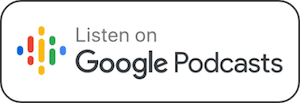




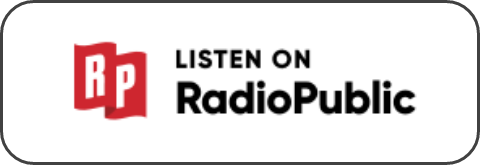
 For more than three decades, Don Scales has run professional services firms and understands firsthand how to make them succeed. In his current role of global CEO of Investis Digital, he is executing on his vision to lead a company unlike anything else in the digital communications space. He’s put together a team with deep expertise in corporate communications and investor relations and united them with innovative performance marketing experts and world-class technology solutions to help companies connect with audiences across all digital touchpoints.
For more than three decades, Don Scales has run professional services firms and understands firsthand how to make them succeed. In his current role of global CEO of Investis Digital, he is executing on his vision to lead a company unlike anything else in the digital communications space. He’s put together a team with deep expertise in corporate communications and investor relations and united them with innovative performance marketing experts and world-class technology solutions to help companies connect with audiences across all digital touchpoints.